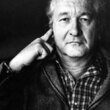Ragtime
Description
More Details
9780307762948
9780812978186
Subjects
Historical Fiction
Literature
New York (State) -- Fiction
New York (State) -- History -- 1865- -- Juvenile fiction
Race relations -- Fiction
United States -- History -- 1898-1919 -- Juvenile fiction
United States -- History -- 1901-1909 -- Fiction
United States -- Social life and customs -- 1900-1919 -- Fiction
Similar Titles From NoveList
Similar Authors From NoveList
Published Reviews
Publisher's Weekly Review
It isn't easy to imitate musical syncopation in prose, but Doctorow pulls it off in the audio edition of his now-classic 1975 novel. The ebb and flow and swing of his sentences, reflecting turn-of-the-century jazz genres, are captured perfectly in his low-key, fast-paced reading. Doctorow seamlessly interweaves his invented characters and incidents with a wide range of historical events and people like Houdini, Henry Ford, Emma Goldman, J.P. Morgan, Sigmund Freud, and others to create a portrait of early-20th-century America that presages the rise of the civil rights and women's movements and our involvement in two world wars. Doctorow's novel and his narration are gifts to savor. A Random House paperback. (Nov.) © Copyright PWxyz, LLC. All rights reserved.
Library Journal Review
Doctorow (1931-2015) reads his classic historical novel (first published in 1975) about the opening days of the 20th century with a dispassionate voice that doesn't stress, emphasize, or otherwise try to influence the listener. He lets the story speak for itself as he narrates as if he were reading a newspaper describing the intermingling of famous people with the ordinary, barely named fictional ones-Mother, Father, Brother, Tateh, etc. Brief intersections hint at unknown potential: Tateh sketching a portrait of Evelyn Nesbit while Freud watches from a car; Houdini having automobile trouble near Father's house; and learning that Father was to accompany Robert Peary to the North Pole. The new century was a time of wonder and change-cars, airplanes, high-risk escapes-and of culture clashes with the poor, blacks, and immigrants that result in injustice, violence, and death. Verdict The fascinating, ironic, and fanciful strands that Doctorow pulls from history and imagination are both humorous and horrific. Hearing the story in the author's own voice is the best way to read this book. Highly recommended.-Juleigh Muirhead Clark, Colonial Williamsburg Fdn. Lib., VA © Copyright 2017. Library Journals LLC, a wholly owned subsidiary of Media Source, Inc. No redistribution permitted.
Kirkus Book Review
Ragtime is a great billiard game of events, ideas and personages at the turn of the century, where the real protagonist is America herself captured in the last gasps of complacency and social Darwinism--waging territorial wars abroad for God, Country and Mammon, breaking strikes and throwing charity balls at home while WW I hovers in the wings. After this, the national identity will never be the same. Doctorow's The Book of Daniel (1971) mythified the Rosenbergs and their children, but Ragtime galvanizes the headlines and heroes of an entire formative era in a political work of even greater magnitude. At the heart of the story is the stultifyingly Victorian model family of a respectable manufacturer of flags, fireworks and patriotic odds and ends whose somewhat Moses-like recovery of an abandoned illegitimate black infant leads to an exemplary tale of racism, insurrection and injustice in America. This is fleshed out by a succession of wildly imaginative run-ins with (or among) Sigmund Freud, Emma Goldman, Houdini, Henry Ford, J. P. Morgan, Booker Washington, Zapata and of course--the Archduke Franz Ferdinand. At that time ""There were no Negroes. . . There were no immigrants"" and that's the bluntly hammered-out theme that pulls it all together: the vulgarity of the wealthy and their oppression of the lower classes. Rest assured, nevertheless, that this is a very funny novel-a high achievement in irony that hinges on distancing and if not history's revenge (the last laugh belongs to a deranged parasitic scion. . .), then the revenge of art. For this is a beautifully realized complex of social epiphanies, all watched over by the spirit of Scott Joplin, and as a midsummer selection of the Book-of-the-Month Club, bound to make an impact. Copyright ©Kirkus Reviews, used with permission.




































